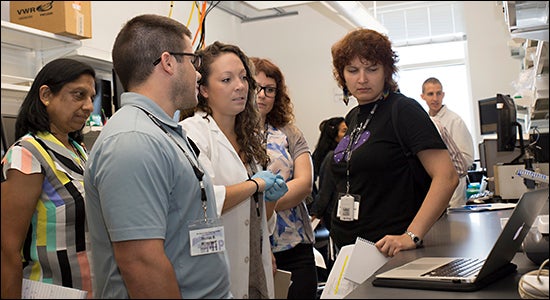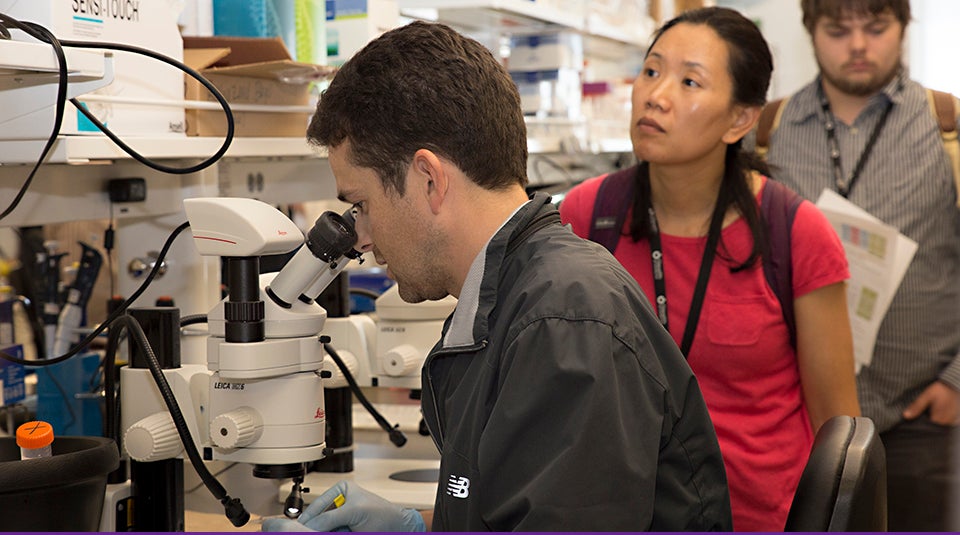‘SUMMER CAMP’ FOR SCIENTISTS
Global conference highlights mitochondria expertise at ECU
Scientists from around the world converged on East Carolina University’s health sciences campus Aug. 10-13 to get a crash course in an organelle that powers all human cells.
Mitochondrial Physiology School, or MiPschool, is a global conference for scientists interested in better understanding the role of mitochondria in human health. It was the first time ECU has hosted the conference, which attracted 100 scientists and presenters from as far away as Austria, Sweden and Nigeria.
“It really is exciting for us,” said Dr. Darrell Neufer, event co-host and director of the East Carolina Diabetes and Obesity Institute at ECU. “It’s like summer camp for adults.”

ECU doctoral student Lauren Reese, center in white lab coat, presents on Mito Ca2 retention capacity during the ECU conference.
Mitochondria are known as the engines of the cell, using the food we eat and air we breathe to produce energy. Their function is essential to life, and a better understanding of how they operate – and what can go wrong – may lead to preventative measures and treatments for a range of diseases.
“Many diseases stem from an imbalance between energy intake and energy expenditure,” Neufer said. Those include diabetes, heart and vascular disease, as well as Alzheimer’s disease and Parkinson’s disease. Addressing several of those could go a long way toward improving the health status of citizens in the East.
“The most prevalent diseases resulting from mitochondria dysfunction are disproportionately high in this part of the state – diabetes, heart disease,” noted Dr. David Brown, an associate professor of physiology at the Brody School of Medicine who partnered with Neufer to bring the MiPschool to ECU.
Brown’s lab has earned approximately $3 million in mitochondria-focused research grants over the last five years, two of which were collaborations with Dr. Raza Shaikh of Brody’s Department of Biochemistry. Drs. Joe McClung and Espen Spangenburg are among the other members of the East Carolina Diabetes and Obesity Institute engaging in grant-funded mitochondria research.
Also attending MiPschool were approximately 20 East Carolina Ph.D. students, who were able to participate in a dozen interactive lectures and several different laboratory technique sessions.
“They’re learning the best techniques, and they’re learning them from the best people qualified to teach them,” Brown said. “It’s not just the knowing, but the doing (that’s beneficial).”
Brown said the opportunity to network with the world’s leading mitochondria experts would also prove valuable to students. This is only the second time a MiPschool has been held in the United States.
